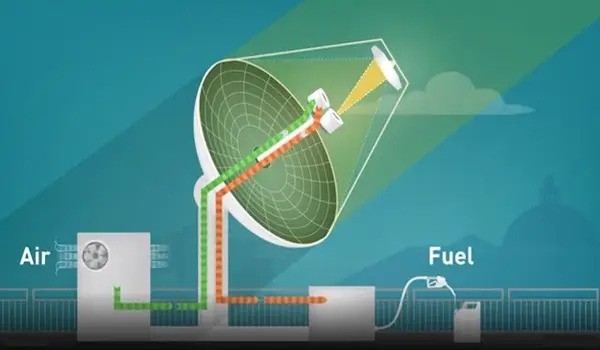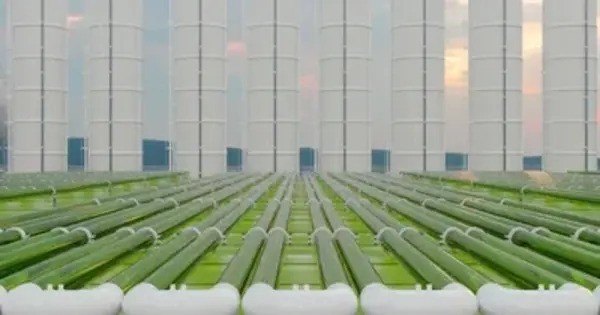Researchers from Baylor University’s Cornerstone Atomization and Combustion Lab (CAC) have developed a ground-breaking technique for the effective burning of biofuels. Their findings, which were recently published in the journal Fuel, use a ground-breaking Swirl Burst (SB) injector to burn glycerol/methanol blends with almost zero emissions. Fuels that are normally difficult to burn because of their high viscosity can now burn ultra-cleanly thanks to this new technology.
The study is positioned to establish a new benchmark for sustainable energy solutions and make substantial contributions to both industry and scholarly applications.
“The current research demonstrates how viscous bio-waste can be transformed to clean energy by the Baylor combustion technology,” said lead author Lulin Jiang, Ph.D., principal investigator of the CAC Lab and assistant professor of mechanical engineering at Baylor, who ‘s School of Engineering and Computer Science.
Being able to transform waste, such as waste glycerol, into cost-effective renewable energy promotes energy resilience and energy equity for economically disadvantaged groups in a changing climate.
Lulin Jiang
Significance for biofuel industry, environmental impact
Despite having a low energy density, glycerol, a common byproduct of the manufacturing of biodiesel, is difficult for conventional injectors to burn because of its high viscosity. The SB injector, on the other hand, has the potential to revolutionize biofuel economics due to its capacity to handle glycerol without the need for expensive fuel preheating or processing. By creating tiny droplets, the procedure enables the SB injector to perform a thorough and clean burn, greatly lowering emissions of dangerous pollutants including carbon monoxide (CO) and nitrogen oxides (NOx).
According to Jiang, this innovative technique also helps biodiesel producers turn waste glycerol into a valuable fuel source, fostering a circular economy and lowering the carbon footprint associated with electricity generation. Because of its versatility, the SB injector can burn a range of glycerol/methanol ratios without requiring hardware changes, which makes it perfect for power plants trying to comply with strict emissions standards.
Jiang and her team are a prime example of Baylor’s dedication to promoting knowledge for the benefit of society by developing novel solutions to urgent global issues. “Being able to transform waste, such as waste glycerol, into cost-effective renewable energy promotes energy resilience and energy equity for economically disadvantaged groups in a changing climate,” Jiang said.

Testing fuel blends
Three distinct fuel blends were examined by the research team at various atomizing air-to-liquid mass ratios (ALR): 50/50, 60/40, and 70/30 glycerol to methanol ratios by theoretical heat release rate. Even in non-preheated, uninsulated combustion setups, all blends achieved over 90% combustion efficiency, including complete combustion by the 50/50 blend, with almost negligible CO and NOx emissions. Compared to traditional air-blast or pressure-swirl injectors, which frequently produce large emissions when using high-viscosity fuels, this is a major improvement.
“The demonstrated high viscosity tolerance and fuel flexibility of the technology signifies that not only waste glycerol, but also the viscous source oils of biodiesel, and other waste-based bio-oils can be directly utilized for energy generation without further processing, significantly reducing biofuel cost and thus potentially stimulating its broad application,” Jiang said.
The breakthrough could help reduce the biodiesel industry’s environmental impact and improve cost-effectiveness.
NSF National I-Corps/NSF Civic Innovation Challenge
Jiang and her research team are members of the National Science Foundation’s National Innovation Corps — or I-Corps™ — program, which underscores the potential impact of their groundbreaking fuel-flexible combustion technology. Through the National I-Corps program, scientists and engineers are prepared to extend their focus beyond the university laboratory — accelerating the economic and societal benefits of NSF-funded and other basic research projects that are ready to move toward commercialization.
In a similar NSF initiative, Baylor and the City of Waco are working together on the NSF Civic Innovation Challenge Project to create climate-smart fuel combustion and waste energy systems at the Waco Landfill. This will help minimize air pollutants like methane and turn trash into clean energy. Among the 19 teams that made it to the next round of the NSFs Challenge, Baylor and Waco received a $1 million grant for a pilot experiment in the hopes of moving on.
















